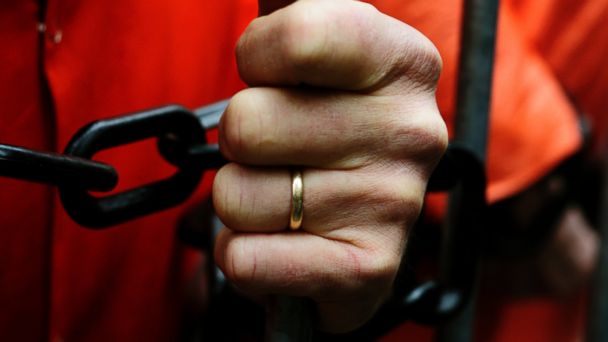ACLU: Thousands Serving Life Without Parole for Nonviolent Crimes

(Credit: Getty Images )
For more than 3,000 people, nonviolent crimes including siphoning gas from a truck and shoplifting three belts from a department store landed them in prison for life.
In a newly released study, the American Civil Liberties Union (ACLU) found that more than 3,200 prisoners are serving life sentences without parole for nonviolent offenses.
"In their cruelty and harshness, these sentences defy common sense," the ACLU wrote in its report. "They are grotesquely out of proportion to the conduct they seek to punish. They offend the principle that all people have the right to be treated with humanity and respect for their inherent dignity."
The ACLU found that about 79 percent of these prisoners were sentenced for nonviolent drug crimes including possession of a crack pipe, possession of 32 grams of marijuana with intent to distribute and having a stash of over-the-counter decongestant pills that could be manufactured into methamphetamine.
Non-drug-related crimes included attempting to cash a stolen check, shoplifting two jerseys from a sports store and making a drunken threat to a police officer while handcuffed in the back of a patrol car, the ACLU said.
In about 84 percent of the cases documented by the ACLU, sentencing judges had no choice in the sentences because of laws requiring mandatory minimum periods of imprisonment, habitual offender laws and other rules. Prosecutors, in asking for certain charges, have much more control of these prisoners' fates, the ACLU said.
The organization also featured profiles of of people who have been "sentenced to die behind bars."
One man, Patrick Matthews, was arrested while riding in the truck of a friend who pawned stolen goods and a welding machine, which the friend was convicted of stealing. Matthews is 25 and was sentenced to life three years ago. The father of two had no violent criminal history and had never been in jail, according to the ACLU.
"I never in the world would've thought that could happen," he told the organization. "Made one mistake and was treated like a murderer."
"One of the judges who reviewed Patrick's appeal said he did not 'believe that the ends of justice are met by a mandatory sentence for this 22-year-old,' but that legislation mandated sending Patrick away for the rest of his life because of unarmed burglary convictions when he was 17," the ACLU said.
The report included suggestions for local and federal government on how to change sentencing rules.